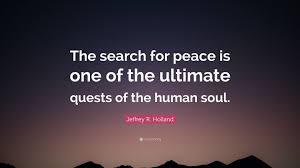How do we describe hope?
Do we use common metaphors for hope to encourage others to believe “there’s a path to good” even in bad times? Here are a few we might have used.
- “There’s light at the end of the tunnel.”
- “Every cloud has a silver lining.”
- “The sun is peeking through the clouds.”
- “Hope is an eternal flame.”
But let’s be honest, when we’re at the “end of our rope” and the “bottom of our world has fallen out”, metaphors about hope will not help us “keep hope alive”. We are looking for something that will ease our troubled souls right now! We need real hope.
What have we learned about hope?
In our study thus far, we have described hope as a combination of desire for something AND the expectation of receiving it. And why is hope important? Because it encourages us to persevere and continue moving forward. We all agree that hope is what is needed as we navigate through the challenges of life in the 21st century.
But hope has ALWAYS been something we humans have needed whether in ancient times or modern days. Man’s ability to survive and thrive has been dependent on hope. The challenge, however, continues to be our ability to identify the BEST SOURCE of HOPE.
Man’s hope
Man’s hope comes from a variety of sources that, when combined and strengthened, provide a foundation for optimism, resilience, and the pursuit of a meaningful and fulfilling life. These include the following which we most commonly use.
Relationships and connections: human connections and strong relationships provide a sense of belonging, support, and love, fostering hope and resilience in the face of adversity.
Personal strengths and abilities: recognizing and utilizing one’s strengths and abilities instills confidence and a sense of empowerment, nurturing hope for achieving goals and overcoming challenges.
Meaning and purpose: finding meaning and purpose in life, whether personal interest, family, community, or spiritual beliefs, provides a sense of direction and motivation, fueling hope for our fulfillment and meaningful existence.
Spiritual beliefs and faith: for many, spiritual beliefs and faith in a higher power offers a sense of peace, guidance, and unwavering hope, providing strength and solace in time of uncertainty.[1]
For we who are followers of Christ, that Higher Power is the Most High God (Psa. 7:17).
The God of Hope
The writer of Psalm 42 recounts their hopelessness and frustration as they, like us, handle times of distress and sorrow. In verses 5, 11, and Psalm 43:5, they ask themselves this question.
Why art thou cast down O my soul? And why art thou disquieted within me? (NKJV)
Why am I discouraged? Why is my heart so sad? (NLT)
We are “cast down” because the things we have tried to do in our human strength is failing to impact our fears. We are “discouraged and sad” because when we look around there is “no light at the end of the tunnel” nor is the “sun peeking through the clouds.”
The reality we must come to grips with is that we live in a fallen world, where sin will continue to manifest itself in the brokenness and pain we see today. Injustice, wars, corruption, and much more. BUT THERE IS HOPE. True hope is not dependent on our circumstances nor on the world situation. True hope results in “peace that passes all understanding: (Eph. 4:7), “unspeakable joy” (1 Pet. 1:8), and “salvation from all danger” (Psa. 18:2).
The Psalmist concludes that the answer to his state of distress and hopelessness can be found in God.
HOPE thou in God…who is the health of my countenance. (NKJV)
I will put my hope in God! I will praise Him again. My Savior and my God. (NLT)
Our hope is built on the faithfulness and dependability of God. We rely on the fidelity of God. God is true, truthful, and trustworthy. His Word and His promises provide the “blessed assurance” we need to not only survive but also thrive in this world. He is our sufficiency (2 Cor. 3:5).
How can we cultivate our hope while living in this fallen world during the 21st century? We must recognize and acknowledge that God alone is the true source of our hope and salvation (Psa. 62:5-12). Next week, we’ll conclude our study on hope by sharing the role of the Holy Spirit in keeping hope alive.
[1] Google search









